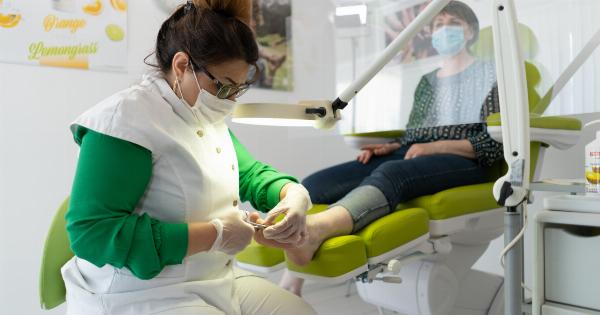Our skin is the largest organ in our body and acts as a protective barrier against external elements. However, just like any other organ, the skin is prone to various diseases and conditions.
In this article, we will discuss four of the most common skin diseases that affect the legs.
1. Eczema
Eczema, also known as atopic dermatitis, is a chronic inflammatory condition that causes dry, red, and itchy skin. It commonly affects the back of the knees and the inner side of the legs. Eczema can appear at any age, but it often begins in childhood.
People with eczema may experience flare-ups where the symptoms worsen, followed by periods of remission where the skin appears normal. The exact cause of eczema is unknown, but it is believed to be linked to the immune system and genetic factors.

2. Psoriasis
Psoriasis is a chronic autoimmune disease that primarily affects the skin. It causes the skin cells to multiply rapidly, leading to the development of thick, silvery scales and red patches. Psoriasis commonly affects the knees, elbows, and lower legs.
The exact cause of psoriasis is still unknown, but it is believed to involve a combination of genetic and environmental factors.
Psoriasis can be triggered or worsened by certain factors such as stress, infections, injury to the skin, and certain medications.

3. Cellulitis
Cellulitis is a common bacterial skin infection that affects the deeper layers of the skin. It can occur on any part of the body, including the legs. Cellulitis is characterized by redness, swelling, warmth, and pain in the affected area.
Common causes of cellulitis include breaks or cracks in the skin, insect bites, and surgical wounds. The bacteria most commonly responsible for cellulitis are Streptococcus and Staphylococcus.
Prompt treatment with antibiotics is necessary to clear the infection and prevent complications.

4. Athlete’s Foot
Athlete’s foot, also known as tinea pedis, is a fungal infection of the skin that primarily affects the feet and can spread to the legs. It is characterized by itchy, red, and scaly skin, often accompanied by a burning sensation.
Athlete’s foot is typically caused by fungi that thrive in warm and damp environments, such as locker rooms and swimming pools. It can be easily contracted by walking barefoot in contaminated areas.
Proper foot hygiene and the use of antifungal medications can help treat and prevent athlete’s foot.

It is important to note that while these four skin diseases share some common symptoms, proper diagnosis and treatment should be sought from a healthcare professional.
Dermatologists are specialized doctors who can accurately diagnose and provide appropriate treatment for skin diseases.































